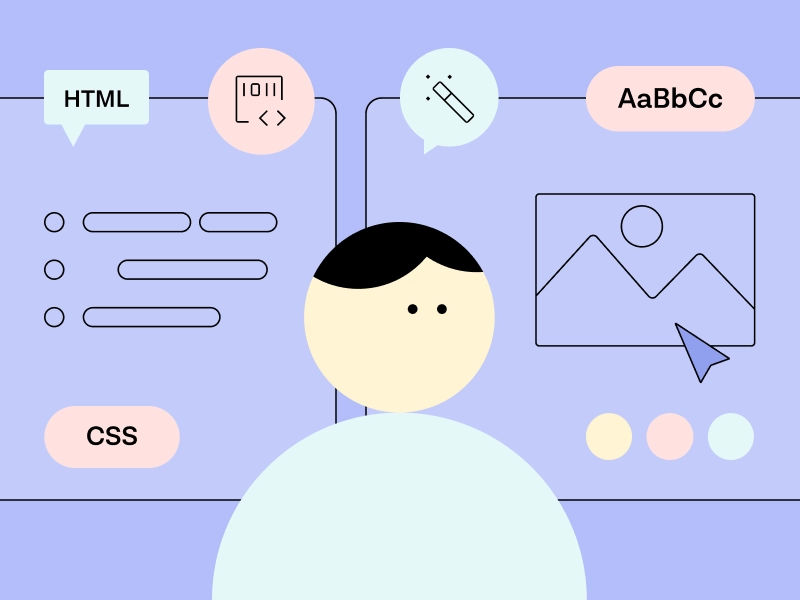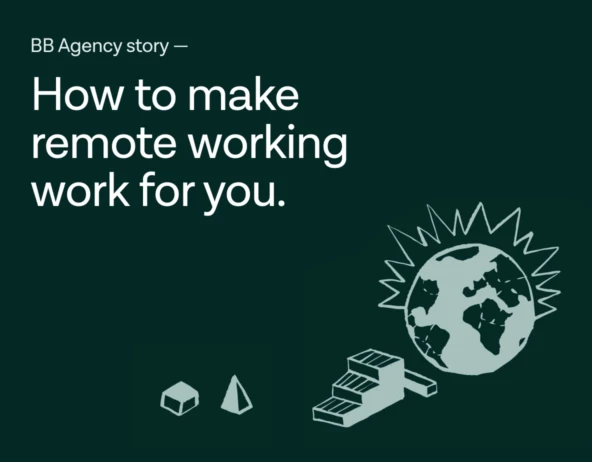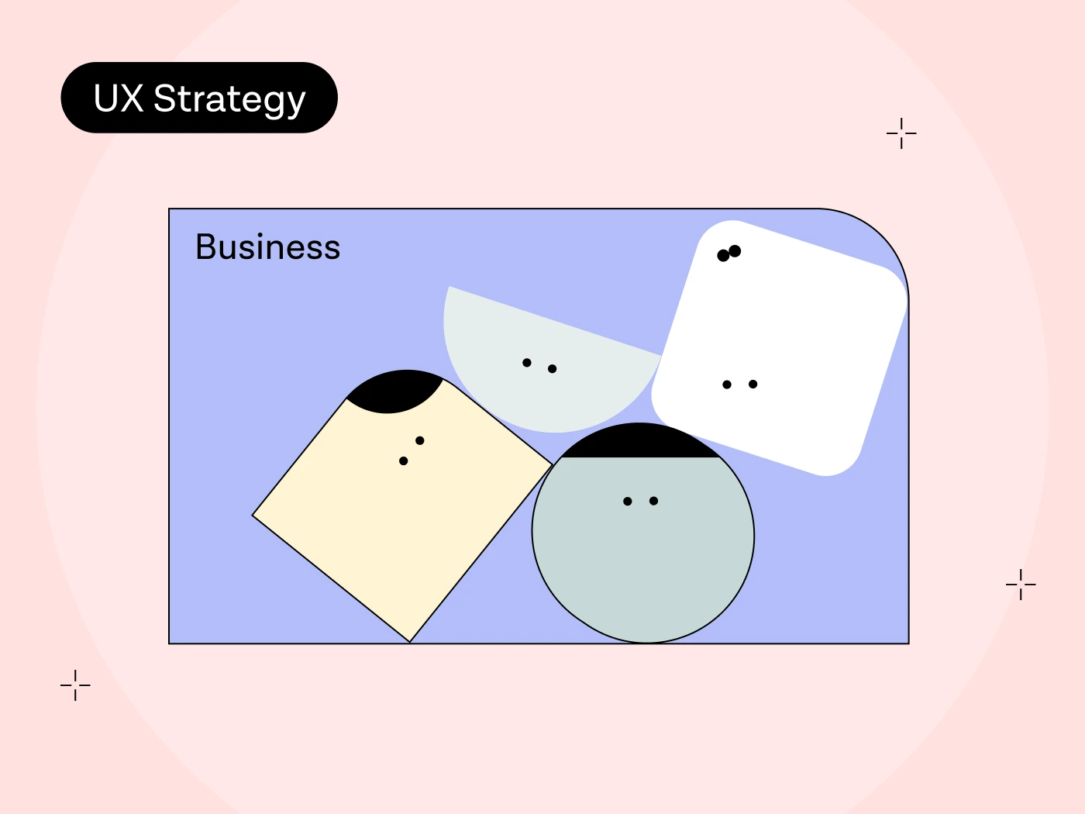In the dynamic world of remote design, where creativity knows no bounds, feedback emerges as a silent hero.
More than a casual exchange, feedback fuels and guides our collective evolution. To us, it’s a tool for growth. In a remote setting, where individuals may miss out on the organic, day-to-day interactions of an office environment, feedback becomes exceptionally crucial.
In this blog, we’ll delve into the profound impact of constructive criticism within our remote design teams, exploring its nuances, challenges, and transformative power.
Guidance on Delivering Constructive Criticism
First and foremost, fostering a culture of openness and trust is crucial, where feedback isn’t perceived as a threat but embraced as a catalyst for growth. Effective feedback calls for empathy, clarity, and humility.
The ultimate goal of feedback is to raise awareness of the impact of one’s behavior and empower individuals to make informed adjustments. Therefore, feedback should be structured, specific, timely, and focused solely on observable actions—never on personal attributes!
Here are a few pointers for delivering constructive feedback that fosters growth and avoids defensiveness:
- Focus on impact, not judgment: Avoid language that belittles or uses absolutes. Instead, describe the specific impact of the behavior from your perspective (e.g., “I noticed…” rather than “You always…”).
- Avoid blame: Focus on what happened rather than assigning blame.
- Offer perspectives, not absolutes: Frame your opinions as perspectives rather than universal truths.
- Find common ground: Establish shared goals before suggesting solutions. (e.g., “We all want to achieve X. To do that, we could…”)
- Ask clarifying questions: If you lack context, ask open-ended questions to understand the other person’s perspective. (e.g., “I noticed you sometimes do X. Could you help me understand your reasoning behind that?”)
- Don’t forget positive feedback: Reinforce the behaviors and actions you want to see more of.
In a supportive culture, everyone should feel empowered to provide constructive feedback openly, creating a continuous cycle of growth and development.
The Hidden Cost of Sugar-Coating Feedback
Inflated feedback hinders learning and growth. It can be damaging to an individual’s career and the company in the long run, as the recipient won’t fully grasp expectations or areas for improvement. You might worry about straining your working relationship by being too direct, but in most cases, people appreciate honesty!
The Secret to Actionable Feedback: Ask for Advice
Ditch asking for feedback and ask for advice instead. People naturally enjoy sharing their expertise; it makes them feel valued. Conversely, giving negative feedback can be uncomfortable, making it less likely for them to point out areas for improvement. The beauty of asking for advice is that it guarantees actionable feedback, whether positive or negative, empowering you with specific insights to grow and improve.
Guidance on Receiving Constructive Criticism
Receiving critical feedback can be uncomfortable, especially when it concerns something as personal as our creative work. However, every critique holds the potential for improvement and a chance to elevate our craft. Let’s embrace a spirit of curiosity and resilience.
Here are a few tips to help you navigate receiving feedback:
- Assume positive intent: Trust that the feedback giver wants to help you improve.
- Avoid immediate reactions: Feedback can trigger our fight-or-flight response. Take a deep breath before responding, resisting the urge to react, defend, or argue. Listen carefully to the message behind the words.
- Seek clarification: Paraphrase the feedback to ensure understanding or ask questions to clarify any points.
- Reflect, don’t react: You don’t have to accept all feedback, but take time to reflect on it rather than reacting in the moment. Acknowledge the feedback even if you disagree with it.
- Separate work from self: Connect the feedback to your role and responsibilities, not to your personal identity.
- Express gratitude: Giving constructive feedback isn’t easy. Thank the person for their effort and willingness to help you grow.
By approaching feedback with openness, understanding, and a focus on growth, we can transform criticism into a powerful tool for personal and professional development.
Why is Feedback Crucial in Our Agency?
Collaboration
At its core, feedback is collaboration in action. It helps us move forward as a cohesive unit, contributing to a more comprehensive and robust final product that reflects the collective wisdom of our team. In a remote environment, where team members may hail from diverse backgrounds and cultures, this diversity of thought becomes our greatest asset.
Enriching Solution Ideas for Our Clients
Diverse perspectives fuel innovation, enriching our designs and anticipating challenges. Feedback guides us in crafting solutions that not only meet but exceed client expectations, ensuring both visual appeal and strategic effectiveness. Whether brainstorming new ideas or refining existing ones, feedback helps steer us toward optimal outcomes.
Handovers
When passing the baton from one team member to another, feedback ensures a smooth transition. It allows us to identify areas for improvement, clarify expectations, and maintain consistency across different stages of a project. Without it, handovers risk misunderstandings and inefficiencies.
Continuous Improvement
Feedback is not a one-time event; it’s a continuous process of refinement and growth. By embracing feedback as an integral part of our workflow and fostering a feedback culture, we commit ourselves to constant improvement.
Conclusion
In the dynamic landscape of design and remote work, feedback isn’t just a tool; it’s our hidden superpower. Whether during handovers, brainstorming sessions, or everyday interactions, feedback fuels collaboration, nurtures open dialogue, and cultivates mutual respect. By embracing feedback as an integral part of our process, we empower each other to unlock our full creative potential and consistently deliver exceptional results.



